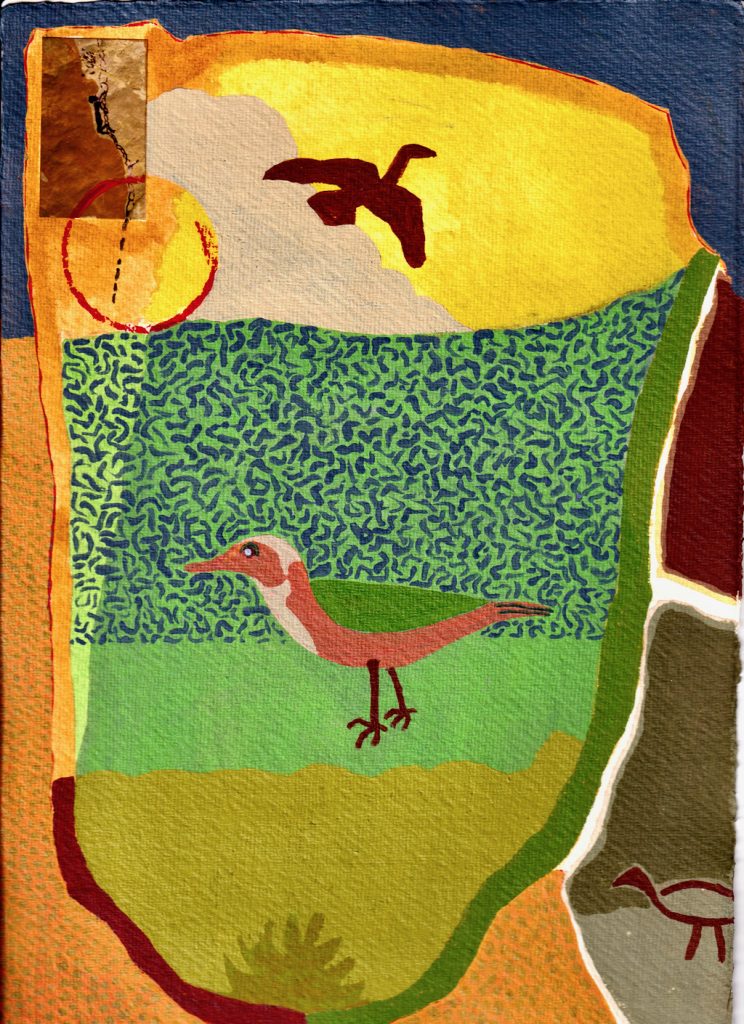
‘We will work with awareness, care and respect to the environment, each other and all humans and more-than-humans, paying attention to our process, methods and our own becoming in this experiment by being’…
UB
Do we need the arts to encourage attention, care and concern? Do they prompt us to a more sustained attention to the concreteness of the world and to the imaginal that permeates it, to what shows itself and to what’s hidden, to foreground and hinterland? Do they prompt a care that keeps us open, keeps us waiting for the unforeseen and allowing it to appear without preconception? Do they prompt a listening that goes deeper than thinking, an animal’s total alertness to the fullness of the world? Is her writing what sustains my daughter, a woman of forty-thee chronically ill since she was thirteen?
As a boy my father would sometimes take me out before sunrise into a wood or plantation to stalk roe deer. It required me to learn a bodily attention to the woodland in its fullness, to everything and anything that might indicate we were in the vicinity of a buck or doe. I learned to walk silently, to foresee what would be under my foot next so as to avoid treading on anything that might make a sudden sound. To be alert to the breeze changing direction or to any alteration in my father’s movements behind me. To be fully immersed in the ebb and flow of the world of the wood. It was no surprise then to read recently that hunting in twentieth-century Corsica: ‘is still endowed with an almost magical and sacred significance’, so that the hunter ‘participates in what can be called an atavistic ecstasy’. (Dorothy Carrington The Dream-Hunters of Corsica p. 78).